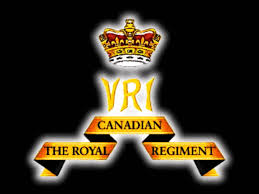This general service award has been created as a means to recognize in a
timelier manner those who serve in or provide support to overseas operations
and for which no other medals, such as United Nations or NATO medals, are
available. Rather than creating a new honour for each new Canadian Forces
operation as it arises, the Operational Service Medal - with its theatre or task
specific ribbons - can be awarded in future to honour participation in any
operation that meets the criteria. The Operational Service Medal (OSM) is
awarded to:
members of the CF;
members of allied forces serving with the CF;
members of recognized Canadian police forces and allied police officers
working with them; and
Canadian citizens other than members of the CF or sworn police
officers working with the CF or with Canadian police forces;
who served in a theatre of operations, provided direct support on a full-time
basis to operations conducted in such a theatre or served under dangerous
circumstances outside Canada. The OSM is always issued with a ribbon
specific to the theatre or type of service being recognized, and each ribbon
has its own criteria.The OSM with EXPEDITION ribbon is awarded to eligible
persons who served in approved locations outside Canada in a theatre of
operations, provided direct support on a full-time basis to operations
conducted in such a theatre or served under dangerous circumstances for at
least 30 cumulative days commencing on October 7, 2001, provided the said
service has not been otherwise recognized by a service medal other than the
Canadian Peacekeeping Service Medal where applicable. This ribbon was
created to provide a flexible form of recognition for those missions or tasks
which size or scope does not justify the creation of a separate ribbon.
This currently includes:
Members of the Defense Team who deployed to the Middle East to
assist the Office of the United States Security Coordinator (USSC)
(Operation PROTEUS) from 3 May 2005.
Canadian police officers deployed to Iraq to provide assistance in the
establishment and training of the new Iraqi police from 20 January
2003.
Service with Op CHABANEL in the theatre of operations consisting of
the waters of the Gulf of Guinea, off the west coast of equatorial Africa
from 17 Apr to 18 May 2006.
Service with Op CARIBBE under the command and control of Joint
Interagency Task Force-South (JIATF-S) in the theatre of operations
consisting of the Caribbean Sea/Gulf of Mexico and along the west
coast of Central and South America, as well as the airspace above this
area, since 1 Nov 2006. The official JIATF(S) boundaries are defined as
extending from Antarctica at 27W, north to 30N, west to the U.S., and
west from the U.S./Mexico border at 32.5N, and south at 120W to
Antarctica.
Service with United Nations International Independent Investigation
Commission (UNIIIC) Mission in Beirut, Lebanon, from 13 Feb 2008 to 28
Feb 2009.
Other eligible service may be added to the eligibility list for the ribbon by the
Chief of the Defence Staff in consultation with Armed Forces Council and on
the recommendation of the Canadian Forces Honours Committee provided
the service in question meets the basic criteria and intent of the medal as
described in the regulations. The only civilians eligible are Members of the
Public Service or Canadian civilians under contract serving under the
authority of the CF or Canadian Police Forces in the theatre and at the dates
indicated. Foreign civilians are not eligible for the OSM. The only members of
allied forces eligible are those who serve in theatre on behalf of Canada. They
are usually foreign exchange personnel who deploy with our units or
personnel seconded to the CF specifically to serve in our mission. In all cases,
they must be on the CFTPO filling a Canadian position and they are usually
assigned a CF service number. Foreign personnel working in concert with the
CF or reporting to a Canadian superior in an international context are not
eligible for Canadian service medals. Aircrew flying into the theatre
accumulate one day of service for the first sortie flown on any day, additional
sorties flown on the same day receive no further credit. The first and last days
in theatre count as full days. To be eligible to be awarded the Medal, service
and direct support must be performed under exceptional circumstances and
the person must have been deployed specifically to provide that service or
support on a full-time basis to the operations. Only when there is a certain
level of risk, threat, hardship or operational intensity can the Medal be
awarded. Any service or support that is comparable in nature to normal duty
or that is performed from the relative safety of a country distant from the
theatre or area shall be excluded from eligibility. Visits and inspections do not
constitute qualifying service. Specifically, visits for the purpose of leadership,
familiarization, ceremonial, or morale by civilian or military VIPs as well as
Staff Assistance Visits (SAVs), Staff Inspection Visits (SIVs), and specialist visits
for the conduct of summary/criminal/administrative investigations, courts
martial, Boards of Inquiry, trial evaluations, academic studies, surveys, visits by
embedded journalists or war artists or other similar activities, do not
constitute eligible service. Any person who dies or is evacuated because of
injuries or medical reasons directly attributable to service is deemed to have
satisfied the time criteria set out above. Any recipient of the Medal who dies
or is evacuated because of injuries or medical reasons directly attributable to
service shall be credited the entire period the person would have served
should the person have completed their tour of duty for the purpose of
calculating eligibility towards Rotation Bars. The Medal and Rotation Bars
shall be awarded for honourable service.

